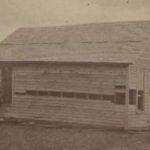 Weird Stuff
Weird Stuff  Weird Stuff
Weird Stuff  Animals
Animals 10 Inspiring Tales of Horses Being Human
 Mysteries
Mysteries Top 10 Haunting Facts About the Ghost Ship MV Alta
 History
History 10 Surprising Stories About the Texas Rangers
 Humans
Humans 10 Philosophers Who Were Driven Mad by Their Own Theories
 Miscellaneous
Miscellaneous 10 Video-Game-Worthy Weapons and Armors from History
 Weird Stuff
Weird Stuff 10 Psychics Who Accurately Predicted Wartime Events
 The Arts
The Arts 10 Pieces of Art Inspired by a Broken Heart
 Health
Health 10 Science Fiction-Sounding New Medical Treatments
 History
History 10 Surprising Facts About the Father of Submarine Warfare
 Weird Stuff
Weird Stuff 10 Times Real Laws Were Based on Bizarre Hypotheticals
 Animals
Animals 10 Inspiring Tales of Horses Being Human
 Mysteries
Mysteries Top 10 Haunting Facts About the Ghost Ship MV Alta
Who's Behind Listverse?

Jamie Frater
Head Editor
Jamie founded Listverse due to an insatiable desire to share fascinating, obscure, and bizarre facts. He has been a guest speaker on numerous national radio and television stations and is a five time published author.
More About Us History
History 10 Surprising Stories About the Texas Rangers
 Humans
Humans 10 Philosophers Who Were Driven Mad by Their Own Theories
 Miscellaneous
Miscellaneous 10 Video-Game-Worthy Weapons and Armors from History
 Weird Stuff
Weird Stuff 10 Psychics Who Accurately Predicted Wartime Events
 The Arts
The Arts 10 Pieces of Art Inspired by a Broken Heart
 Health
Health 10 Science Fiction-Sounding New Medical Treatments
 History
History 10 Surprising Facts About the Father of Submarine Warfare
10 Private Adventurers And The Nations They Forged
Colonialism tends to be a collaborative enterprise, often undertaken by government forces, which requires meticulous planning. However, some private individuals, like Kipling’s Dravot and Carnehan (and their real life counterpart, Josiah Harlan), simply plunge into the unknown and manage to conjure up a nation. Whether these endeavors were driven by ambition, dedication, or delusion, they remain utterly fascinating.
10 Joseph William Torrey
North Borneo

Born in Maine, Joseph Torrey was a restless fellow. He worked as a clerk at a commercial house in Melbourne, a journalist for the Boston Times and in Hong Kong, at a shipping brokerage firm, and as vice-consul in Siam, before founding the American Trading Company of Borneo in 1864. In this guise, he purchased a lease of sizable territory in North Borneo and was named “Raja of Ambong and Maradu” by the Sultan of Brunei. Twelve Americans and 60 Chinese promptly established a colony at Ellena, but Torrey wasn’t among them. He spent his time seeking financial backers in Hong Kong.
Ellena, however, was a disaster. The man Torrey left in charge died of fever (as did many others), it lacked the necessary funding to pay its Chinese laborers, and its Chinese commercial backers quickly lost confidence. It was abandoned within a year. Torrey returned to the area in 1875 with the intention of extending his lease before ultimately selling to the Austro-Hungarian consul Baron Gustav Von Overbeck. Overbeck lobbied in vain to get his government interested in the area, but it eventually passed into British control.
9 Walter Reinhardt Sombre
The Principality Of Sardhana

Walter Reinhardt Sombre’s early years are shrouded in mystery. He is referred to variously as French, Swiss, or German. Some believe that he sailed to India in British service and then deserted to the French; others think that he sailed to India in French service and then deserted to the British, and then back again. In any case, Sombre eventually ended up in the service of Mir Qasim, Nawab of Bengal, and in 1763, he committed an act for which he was to become infamous
Mir Qasim was at war with the British and had several of his enemies held captive in Patna. He ordered Sombre to execute them. Sombre did so with gusto. He separated 40 British officers from their men by inviting them to dinner and then slitting their throats before massacring the remainder, killing a total of 150 Europeans. He spent the following few years fleeing British retribution before being granted control of the 620-square-kilometer (240 mi2) territory of Sardhana. There, he and his slave-girl wife, the Begum Sumru, set up a composite court consisting of Indian nobles and shady Europeans.
After his death in 1778, the Begum ruled independently for 58 years, but upon her death, the British seized the territory. This outraged David Ochterlony Dyce Sombre, Walter’s great-grandson, who subsequently went to Britain. He initiated a 37-year legal battle, was elected to and thrown out of parliament, went insane, challenged the Duke of Wellington to a duel, and died an alcoholic pauper, among other adventures.
8 Jeremiah Heaton
The Kingdom Of North Sudan

Like many young girls, seven-year-old Emily Heaton wanted to be a princess. Unlike many young girls, Emily’s father, Jeremiah, previously a failed congressional candidate, set out to make her dream a reality. Heaton first considered Antarctica, but international treaties prevented anyone from claiming land there. His next choice was Bit Tawil, an uninhabited, 2,100-square-kilometer (800 mi2) patch of desert which, due to some historical quirks and its general undesirability, lay unclaimed by both Sudan and Egypt. In June 2014, he flew to Egypt and made a 14-hour caravan trip to plant a flag, created by his kids, in Bir Tawil, which he had renamed the Kingdom of North Sudan.
While most probably saw this as a cute stunt from a doting father, some have denounced Heaton as a detestable example of white privilege. Despite this criticism and the unlikelihood of his claim being recognized, which would require permanent occupation of the territory and recognition from Sudan and Egypt, Heaton seems invested in the project. He’s talked about using desert farming techniques to turn the area into an agricultural hub, building a pipeline to channel (desalinated) water from the Red Sea, and setting up an Internet server farm in pursuit of digital freedom. Disney and Super Size Me‘s Morgan Spurlock also intend to film the story, though it’s unclear if it will be a documentary or feature film.
7 Jules Gros
Counani
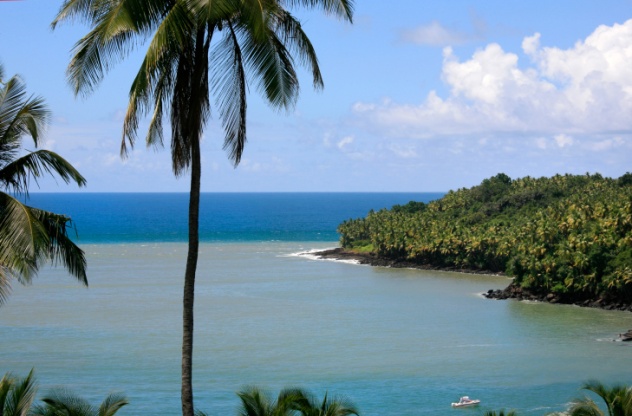
In 1886, French settlers in Counani, part of a disputed demilitarized zone between Brazil and French Guiana, declared themselves an independent republic. They chose as their president the Parisian Jules Gros, a well-regarded figure. He was a former secretary of a French geographic society, writer for several popular magazines, and an acquaintance of leading Counanian figures, Henri Courdreau and a M. Guignes. The new nation consisted of a few hundred criminals, deserters, fugitive slaves, and a few traders.
Gros was informed of his appointment by telegraph but quickly found himself deposed. This occurred, apparently, when a Counanian official was caught trafficking prohibited substances, and Gros worked to disassociate himself from the scandal. The trafficker then accused Gros of alcoholism, and the outraged president summarily revoked the authority of all his Counanian officials. They, in turn, declared his removal from the presidency. Gros then made several thwarted attempts to reach “his” nation but ultimately died in 1891. Counani stumbled on for a while longer. Gold was discovered there in 1895, which triggered Franco-Brazilian border skirmishing and ultimately Swiss arbitration, which awarded the area to Brazil.
This fact, however, didn’t stop Adolphe Brezet from tearing around Europe and claiming to be President of Counani from 1901–04. His deception was only uncovered when the Russians and Japanese, then at war, directed their Brazilian consuls to make contact with Counani in the hopes of procuring ships. Brezet had claimed his country had magnificent shipyards, when, in reality, it had none. The consuls were shocked when informed that the nation did not exist.
6 John Baker
The Republic Of Madawaska

Lying between Quebec, New Brunswick, and Maine, Madawaska was disputed territory largely outside government control. Many French Acadians fled there to escape British persecution following the French and Indian War, as did British loyalists following the American Revolution. As a result, the population consisted of fervently anti-British Acadians and anti-American British loyalists. The Treaty of Paris’s failure to clearly delineate borders further exacerbated these tensions, as did the War of 1812.
Then, in 1817, American settlers strolled into the already volatile situation. Among them was John Baker, who on July 4, 1827, hoisted a flag, similar to the US flag, and announced his intention to found the Republic of Madawaska as an independent American republic. He was promptly arrested and fined by New Brunswick authorities, which outraged the Americans and created a diplomatic incident. Over the following months, land agents and census takers from both Maine and New Brunswick flooded into the area, where they were often ignored or arrested. The negotiators set up by the Treaty of Ghent (which ended the War of 1812) also failed to come to a border agreement, allegedly because the surveyors got drunk and sailed up the wrong river.
In 1828, the border issue was referred to an arbitration by (of all people) the King of the Netherlands, but the arbitration’s suggested border was ignored by both sides. Tensions bubbled for another decade before the outbreak of the Aroostook War in 1838. This “war” was mostly bloodless and consisted mainly of lumberjacks shouting at each other. Fortunately, the 10,000 militiamen mobilized by Maine and the 50,000 sent by the US Congress never saw action, and the border was finally settled by the Webster-Ashburton Treaty of 1842.
5 Jean-Baptiste Dutrou-Bornier
The Kingdom Of Easter Island
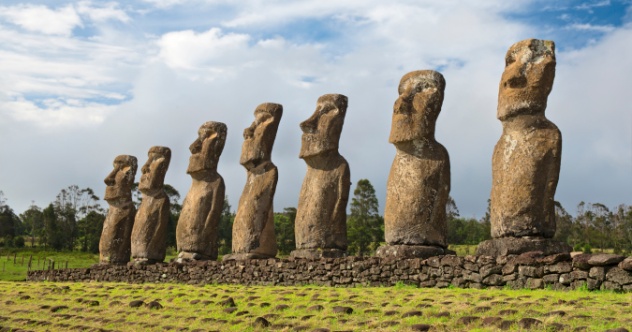
Jean-Baptiste Dutrou-Bornier served as a French artillery officer in the Crimean War before he abandoned his family to travel the world in the 1860s. Despite being briefly arrested in Peru for gun-smuggling, Bornier settled into work that consisted of “recruiting” (possibly slave-trading) numerous Pacific Islanders for work on Tahitian plantations. Through this, he became familiar with Easter Island. After accruing significant gambling debts, he returned to the island on a permanent basis in 1868.
Bornier’s plan was gloriously bonkers; he would turn the island into a sheep ranch. To this end, he began purchasing land from the native Rapa Nui people (who had been depleted by illness), as well as deporting them to serve as indentured servants elsewhere. These activities, and his kidnapping of young girls for pleasure, triggered outrage from the island’s missionaries. Relations between the two deteriorated to such an extent that Bornier burned down the mission station and ultimately forced them off the island.
Meanwhile, Bornier declared himself to be “King Onesime” and, to secure his rule, married (perhaps forcibly) the Princess Koreta, an alleged descendant of the last Rapa Nui king. Among other things, he created a vineyard and lobbied for France to make Easter Island a protectorate. This, however, failed, mainly due to the hostile reports of the missionaries.
In 1876, Bornier died unexpectedly. The cause of his death is disputed. Some claim he died of wounds sustained from falling off his horse, while others are adamant he was murdered by Rapa Nui. By the end of his eight-year reign of terror, the population of Easter Island had been reduced to a mere 111 people.
4 William Augustus Bowles
The State Of Muskogee
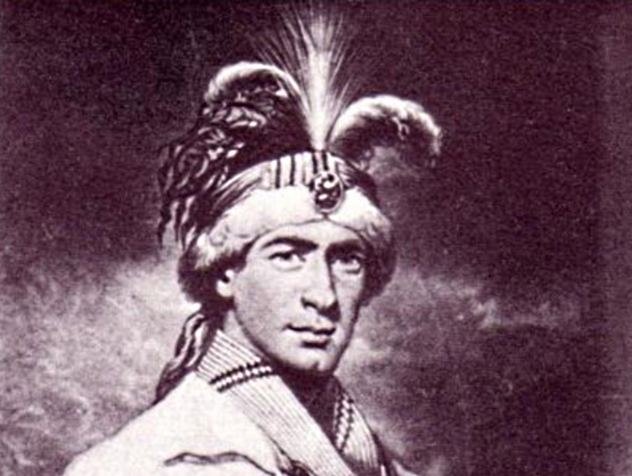
William Augustus Bowles joined the loyalist forces at the outbreak of the American Revolutionary War as a 13-year-old but was kicked out for insubordination in 1779. He spent the next two years living among the Native American Muskogee tribe of the Upper Creek River, where he was adopted by a minor chief. He was forced to flee when he fell afoul of Alexander McGillivray, a Scottish half-caste and the paramount Muskogee chief. (The Muskogee had a history of interrelations with British traders.) A decade later, when McGillivray was on his deathbed, Bowles returned and struck at McGillivray’s allies in Spanish Florida. Unfortunately, he was captured and spent several years shuttling between Cuban, Philippine, and Spanish jails.
While being transported between prisons, Bowles was able to escape and made his way to England, where he secured royal support on behalf of the natives. In 1799, he returned to Florida by way of the West Indies, where his native dress made him a minor celebrity. Upon his return, he declared himself “Director-General of the Creek and Cherokee Nations,” which later became “Muskogee.”
The locals, deeply resentful over white encroachment on their territory and in need of Bowles’s foreign connections, rallied to him. Hostilities with Spain also resumed, with Bowles waging a skilled guerrilla campaign against them. His ragtag army was composed of Seminole, Creek, Black Seminole, fugitive slaves (who were welcomed), and a few whites recruited from the West Indies and local areas, some of whom were criminal runaways. Armed by the British, the Muskogee burned plantations, stole slaves (and occasionally the families of free blacks), and even maintained a somewhat successful navy. The raiders proved more than a match for their Spanish adversaries, despite some fierce clashes with Spain’s black militia.
Unfortunately, the multicultural society of Muskogee also presented a threat to the fledgling United States, which sent in Native American agent Benjamin Hawkins. Hawkins’s intrigues, as well as the loss of British support following the Treaty of Amiens in 1802, eventually saw Bowles’s support among the Native chiefs ebb away. In an attempt to stem the tide, Bowles decided to confront Hawkins and a conference of chiefs directly, only to be seized and given to the Spanish in return for a sizable bounty.
3 Charles-Marie David De Mayrena
The Kingdom Of Sedang
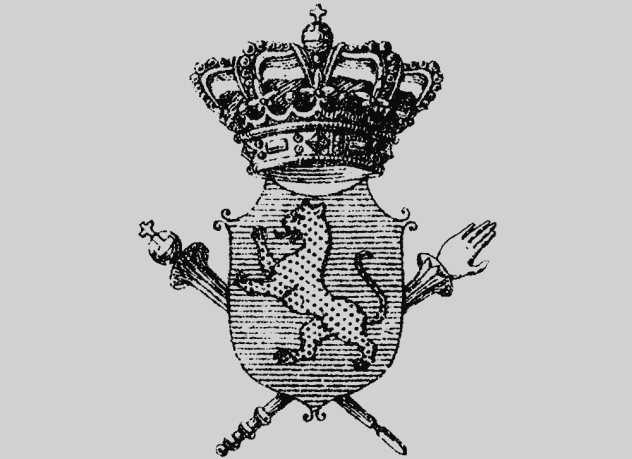
Charles David, who adopted the more aristocratic surname Mayrena, was an inveterate ne’er-do-well. He had served in the French army during its conquest of Cochinchina and in the Franco-Prussian War before he began working for a bank. In 1883, he was charged with embezzlement and fled to the East, abandoning his wife and two children. His original intention was to fight in the Dutch-Aceh War, but he ultimately set up a plantation in central Vietnam, only to be accused of gun-running.
As such, he traveled into the highlands and, with the help of two French missionaries, drew together several tribes into the “Kingdom of Sedang,” with himself as King Marie I. His royal pretensions included ordering royal stationery, flags, postage stamps, and military uniforms, granting interviews to somewhat bemused journalists, and writing letters to foreign leaders, including the French president.
Despite this confident display, Mayrena’s actual position was precarious. He soon ran out of funding and had the marvelous idea of blackmailing the French government into supporting him by threatening to sell his territory to Britain, Siam, or Germany. They were not amused. After spending only a few months in his kingdom, he returned to Europe to raise funds. The king was back in Asia by early 1890, having scrounged together enough money to buy weapons, but the French refused to let him reenter Indochina. Shortly thereafter, he died in mysterious circumstances, with suicide, duel, and snakebite all posited as responsible for his death.
2 The Clunies-Ross Kings
The Cocos Islands
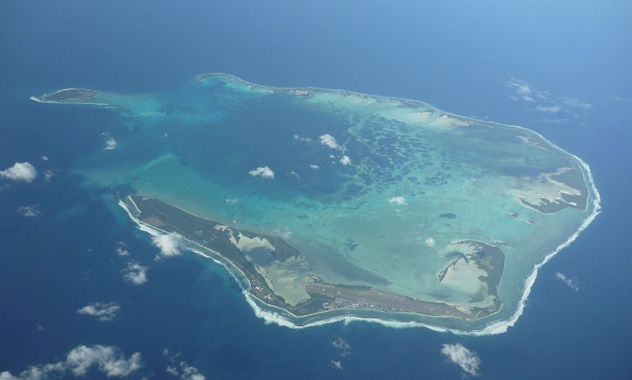
In the 1820s, Scottish adventurer John Clunies-Ross claimed the previously uninhabited Cocos Islands, which are located in the Indian Ocean approximately 3,000 kilometers (2,000 mi) northwest of Perth. He immediately set about importing a Malay workforce to plant coconuts and harvest copra, while nuts and oil were also lucrative exports. Queen Victoria recognized the Ross family in 1886, accepted them into the British Empire, and granted them the land in perpetuity. Their rule was also largely benign, with many Malays staying and having children after their indenture period ended.
Unfortunately for the family, the outside world gradually began to intrude on their island kingdom. During World War I, a telegraph station was installed, and this drew the famous German raider SMS Emden, which had sunk 27 ships for the loss of only a single life. A distress signal was sent to a nearby convoy, and the HMAS Sydney steamed to engage the German ship. Thus began the Royal Australian Navy’s first victory, which ended with the Emden beached on the uninhabited North Keeling Island, part of the Cocos archipelago. A Japanese ship came in World War II for the same reason but left after a short bombardment.
Following World War II, the island was placed under Australian sovereignty, and in 1974, the UN condemned the “feudal” Ross regime. The Australian government consequently purchased the islands for $6.25 million in 1978, but this was sucked up in a series of legal battles regarding the Ross’s palatial mansion and lost in its entirety after a failed shipping venture. The last king, Ross V, now lives in obscurity in suburban Perth. His son still lives on the islands, albeit in reduced circumstances. He resides in a bungalow and makes a modest living farming giant clams.
1 James Harden-Hickey
The Principality Of Trinidad
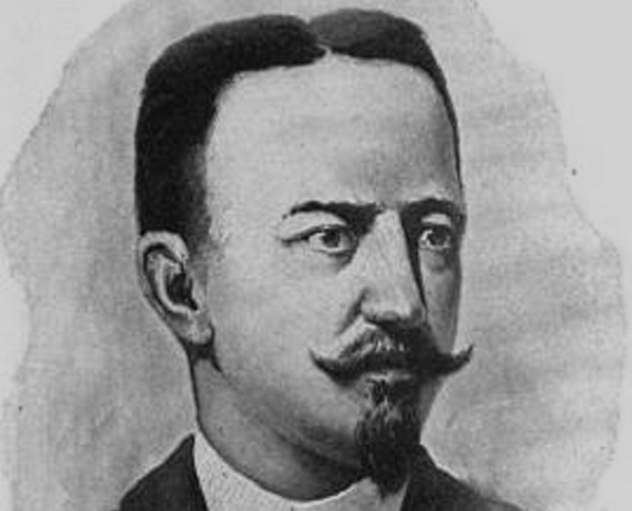
Born in San Francisco in 1854, James Harden-Hickey was taken to Paris by his French mother to avoid the furor of the Gold Rush. There, his imagination was captured by the splendor and excess that typified the city during the reign of Emperor Napoleon III, especially the court at Tuileries. Hickey eventually attended the military academy at Saint-Cyr, from which he graduated an expert swordsman, and wed a countess.
Despite his admiration of Napoleon, Hickey was an ardently pro-Bourbon royalist. This dedication was central to his writing endeavors, which consisted of several novels, a tract on suicide, and the magazine Triboulet. The latter was so vociferously royalist and anti-republican that he fought many duels and faced 42 lawsuits, being fined 300,000 francs. Following the death of his benefactor, patron, and financier, Count Henri of Chambord (the Bourbon pretender and grandson of Charles X, who was deposed in 1830), Hickey fled France. He then sailed around the world and also remarried (having divorced his first wife), this time to the only child and thus heiress of American oil millionaire John Flagler.
During this voyage, he stumbled upon the uninhabited island of Trinidad in the South Atlantic (not the one in the Caribbean), and in 1891, he declared himself its prince. After this proclamation, he established an order of chivalry, had jewelers manufacture a crown, and declared a royal monopoly over the island’s guano, turtles, and (rumored) buried treasure. Things progressed favorably for a while. A schooner of 300 coolies was sent and some building done, but then, in 1895, British ships laying a telegraph cable unilaterally seized Trinidad as a relay station.
This resulted in a standoff between Britain and Brazil (who claimed the island by virtue of a fleeting Portuguese settlement), while James was left in the dust. He was roundly mocked by the press, and his father-in-law was unwilling to fund his planned invasion of England. Left depressed and demoralized, Prince James Harden-Hickey of Trinidad committed suicide in an El Paso, Texas, hotel room in 1898, at the age of 43. Among the personal effects found at the scene were his royal crown, an official flag of Trinidad, and a letter from famed filibuster Ralston Markowe, which offered to make James king of Hawaii.
Tyler is a misanthropic, remorselessly cynical, and incredibly lazy recluse who only goes outside in pursuit of education and to scream expletives at football (that is, AFL) umpires. Throwing vaguely word-shaped things at the Internet is the most productive activity this miserable creature is capable of. Should you feel the need to abuse him you can do so via e-mail ([email protected] or [email protected]) or Facebook.








